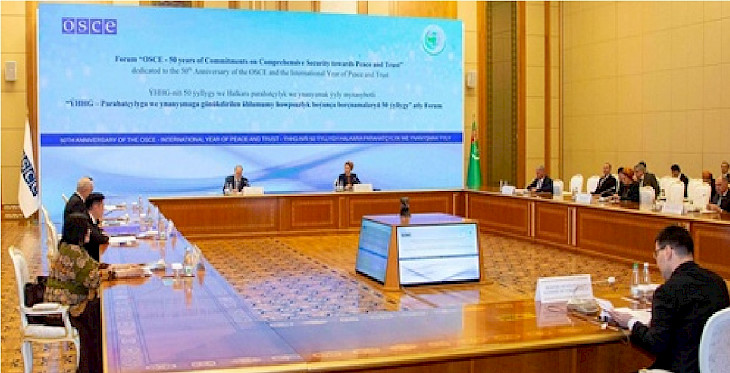Turkmenistan is undergoing a rapid transformation of its foreign policy, moving away from its traditional stance of neutrality toward active engagement with the West—particularly the European Union and Anglo-Saxon countries, Eurasiatoday.ru reports.
A recent forum in Ashgabat, co-hosted by the OSCE and Turkmenistan’s Ministry of Foreign Affairs, marked a significant step in this direction, highlighting the country’s new international approach.
Unlike its former policy of strict neutrality, Turkmenistan is now actively building ties with Western nations, strengthening diplomatic and economic relations.
Western powers, eager to expand logistical corridors from Central Asia to Europe, appear willing to overlook Turkmenistan’s internal political issues—offering Ashgabat unique room to maneuver on the international stage.
As a result, the country is expanding its diplomatic presence, engaging in talks with the EU, exploring WTO accession, and advancing both economic and humanitarian initiatives.
However, behind this diplomatic success lies a potential risk. History offers many examples of the West supporting its "partners" only as long as it serves its interests - only to withdraw support later, leaving behind political crises and economic collapse.
Turkmenistan now risks losing its unique status and becoming entangled in foreign agendas, where long-term national interests may be traded for short-term benefits and hollow promises.
The pivot toward the EU and its allies could lead to a loss of strategic autonomy. For a country with such a complex geopolitical position, this path may not lead to stability - but rather to walking a dangerous edge. And the cost could prove too high.
CentralasianLIGHT.org
May 8, 2026

